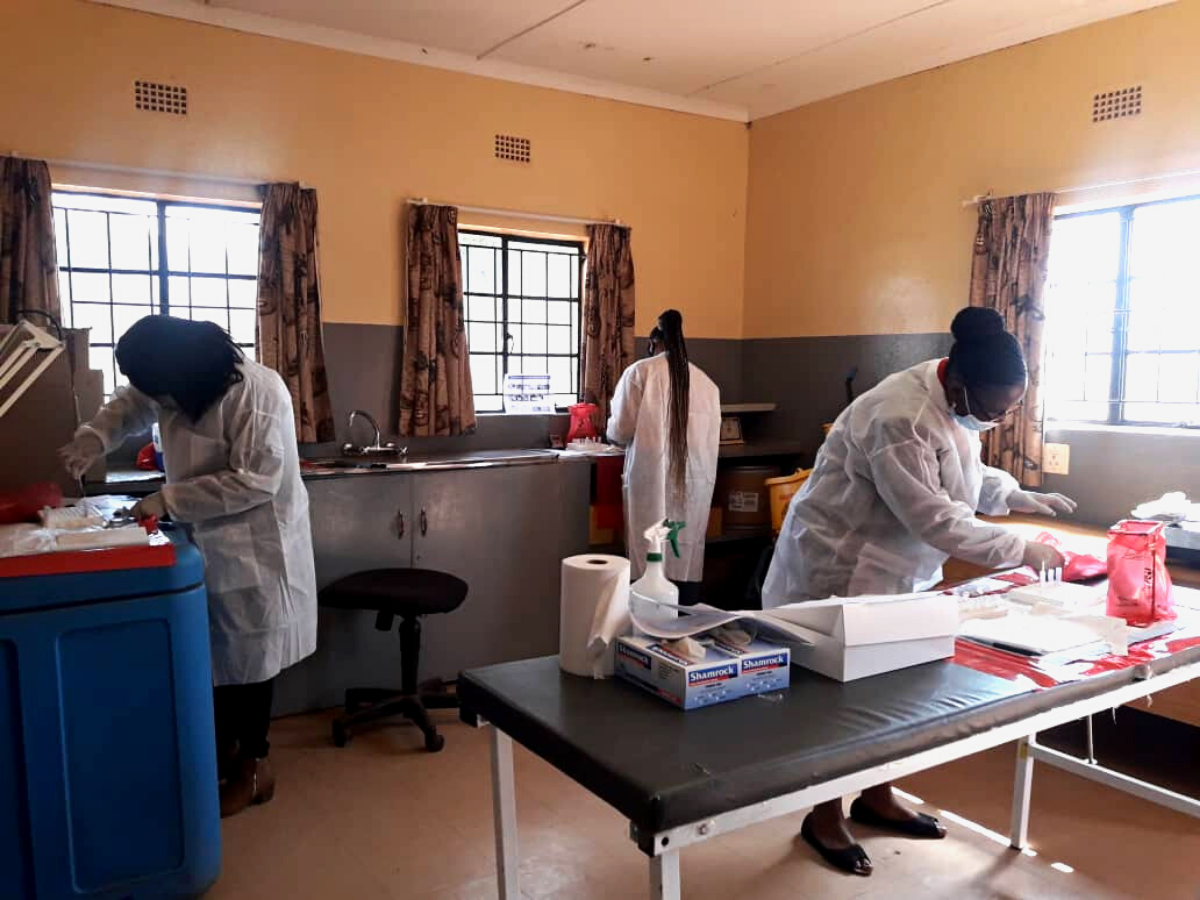Through the integration of HIV recency testing into HIV testing services, ICAP in Eswatini is accelerating national efforts to achieve epidemic control. The new measures will be introduced in the upcoming spring 2022 revision of the National HIV Management Guidelines, drawing on data from the Eswatini HIV-1 Recent Infection Surveillance (EHRIS) program as an important evidence base.
While 95% of people living with HIV are aware of their HIV-positive status in Eswatini, identifying areas with on-going transmission is critical to steer national efforts to reach those that need care the most. The EHRIS program – also part of the global Tracking with Recency Assays to Control the Epidemic (TRACE) project – was launched in 2019 to track recent HIV infections by providing continuous epidemiological surveillance data on person, place, and time of HIV recent infections amongst adults 15 years and older to inform HIV prevention and epidemic control strategies. Funded by the U.S. President’s Emergency Plan for AIDS Relief (PEPFAR) through the Centers for Disease Control and Prevention (CDC), EHRIS specifically focuses on recent infections among newly diagnosed people living with HIV.
“Innovative programs like EHRIS are closing the gap through targeted HIV testing to reach the remaining five percent and detect clusters of continuing or recent infections,” said Suzue Saito, Project Director of TRACE and Strategic Information Unit Director of ICAP.
ICAP has assisted the Ministry of Health in Eswatini to leverage key insights from EHRIS, informing the following additions to the National HIV Management Guidelines:
- Adoption of HIV recency testing as an integral component of routine HIV testing services to enhance identification of areas with on-going transmission;
- Increased targeted testing through utilization of a screening tool in high-volume entry points, such as outpatient departments (OPD) and voluntary counselling and testing (VCT), which are finding the greatest number of recent infections but lack efficiency;
- Introduction of a flowchart system and systematic record assessment to aid in verification of new HIV diagnoses to determine if they are true new diagnoses. A true new diagnosis is someone who has never been diagnosed with HIV or taken antiretroviral therapy. This update was included in response to surveillance data indicating many patients already on antiretroviral therapy, indicating previous HIV diagnoses, are undergoing re-testing.
Complementing the flowchart system, the standard of care procedures – a component of the national guidelines – have similarly been updated to include a systematic assessment of existing records by health care providers to rule out previous HIV diagnosis in all service entry points. To further bolster the national guidelines, information, education, and communication (IEC) messages were developed to encourage patients to disclose their HIV status to health care workers. The messages also target health care workers, encouraging them to create and provide a friendly and enabling environment for clients to disclose any history of previous diagnosis. These key policy changes mark important steps to improve national program efforts and ultimately prevent further transmission to help end the HIV epidemic in Eswatini and globally.
About ICAP
A major global health organization that has been improving public health in countries around the world for nearly two decades, ICAP works to transform the health of populations through innovation, science, and global collaboration. Based at Columbia Mailman School of Public Health, ICAP has projects in more than 30 countries, working side-by-side with ministries of health and local governmental, non-governmental, academic, and community partners to confront some of the world’s greatest health challenges. Through evidence-informed programs, meaningful research, tailored technical assistance, effective training and education programs, and rigorous surveillance to measure and evaluate the impact of public health interventions, ICAP aims to realize a global vision of healthy people, empowered communities, and thriving societies. Online at www.icap.columbia.edu








